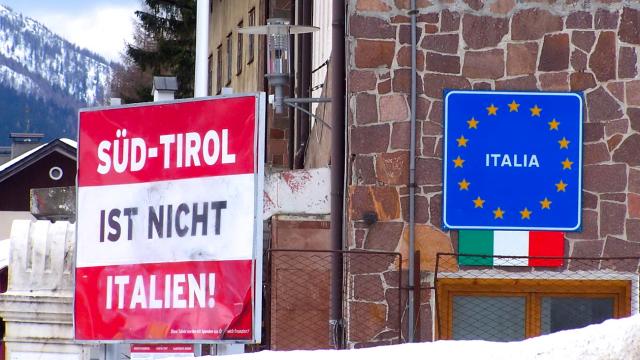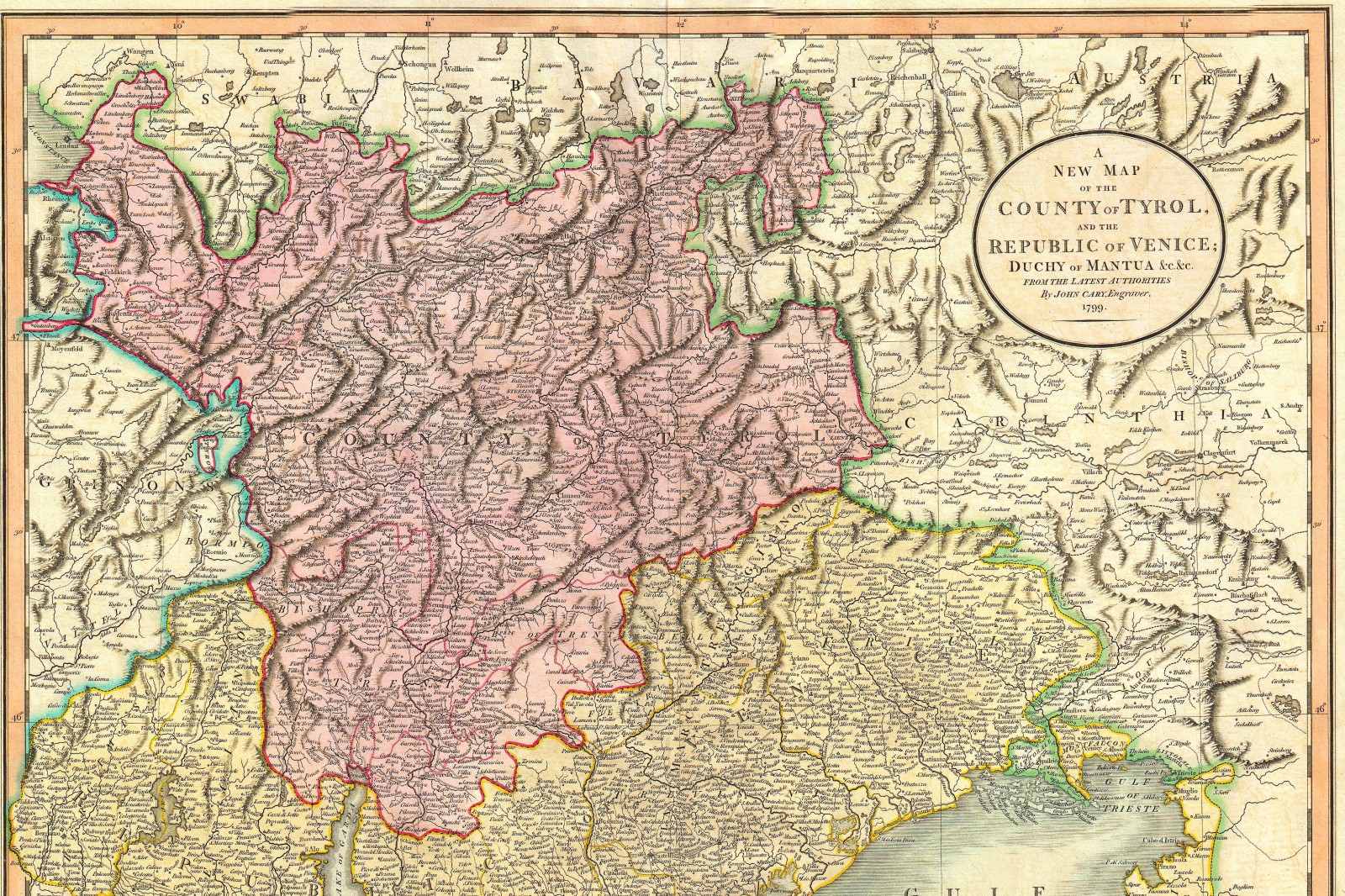
Were it not for the unrelenting efforts of activist Eva Klotz, the troubles involving language, culture and political identity in the Südtirol/Trentino-Alto Adige region of the Italian Alps could easily be dismissed as the luxurious problems of two wealthy, western-Europeans peoples. South Tyrol Freedom
Those on both sides of the battle of wills being waged between the Italian “occupiers” and South Tyrol’s German-speaking, Austrian-identifying citizens in the autonomous Italian provinces of Trentino and South Tyrol-Bolzano are fiercely determined to either keep Alto Adige Italian or, on the opposite end of the political spectrum, return part of the region to Austrian rule.
“First and foremost, Südtirol Freiheit is fighting to have a future without Italy,” said Dr. Klotz, a former provincial councilor and the founder of Südtirol Freiheit, or South Tyrolean Freedom.
“In our movement, we have people preferring a return to Austria. We also have those who want to have a new independent state of Südtirol," she added.
The Alps region was part of Austria-Hungary and its predecessor powers until Italian annexation in 1919, but is now ruled by a semi-autonomous provincial government. Klotz and many of her fellow German-speaking South Tyroleans would welcome reunion with Austria, but after nearly 100 years under Italian rule — and with 26 percent of Tyroleans speaking Italian as their first language — it’s not hard to imagine a breakaway movement by ethnic Italians if South Tyrolean Freedom's ambitions were to ever realized.
Seventy percent of people in the region speak German as their first language, while another four percent speak the local language called Ladin.
At present, Klotz and her organization are promoting an online, non-binding referendum that asks residents: “Do you agree that the South-Tyroleans [should] exercise their right to self-determination [to] freely decide the future of their territory?” The referendum is being likened to similar plebiscites taken by Spain’s Catalonian population in 2009 and 2010.
“This is consultative, not legislative,” Klotz added. “We’re hopeful that we will have high participation and a good expression of will to change South Tyrol’s political development."
The Alto Adige region’s two provinces, Trentino and South Tyrol, are nestled in the soaring Alps between Austria’s southeast and Italy’s northeast corners. Both provinces enjoy home rule in terms of regional administration, resulting from a 1972 accord that granted the zone generous autonomy from Rome. For the most part, only federal policy issues and foreign affairs require Italian national government involvement or approval.
But Klotz and her fellow separatists say that’s not good enough. “Actually, what is called autonomy is not the solution,” she said. “It is not justice.”
Tyrolean angst isn't limited to the cascades of this land — located 150 miles (250 kilometers) from the place where Julie Andrews’s famous opening scene in “The Sound of Music” was filmed — but extends to the deep-felt emotions shared by Tyroleans living abroad.
Los Angeles attorney Constance Zec Bessada is one of them. Bessada’s ancestral heritage is tied firmly to the craggy precipices and green valleys of the semiautonomous region. Raised on stories about the defiance of her Austrian relatives and forebears, Bessada still recalls the urgency with which her grandmother explained her Tyrolean roots, retelling stories of “brutal Italian suppression” of all things Tyrolean—starting with the replacement of the region’s German name, Tirol, with the Italian name, Alto Adige.
“They instituted an Italian-only regime in the beginning,” she said. “They renamed the region's towns and cities in Italian and forbid German on signs and in the public square.”
But, said Bessada, over time South Tyrol’s Italian occupiers softened their hard-line Italian-only policies.
“Gradually, the signs became bilingual,” she said, "and they started allowing German to be spoken. Then, they began restoring some of the original local names. About a month ago, it made the news when one town took down all the Italian signs and left only the German ones standing.”
According to Bessada, decades of trying to force Italian on the Germanic locals did little to make the region more Italian. In fact, it may have had the opposite effect. “The suppression has obviously left a bad taste in the Süd-Tirolers' mouths,” she added.
"But like so many occupied peoples, they have not let go of their traditions and their identity, no matter how brutal the occupying determination. I'm thinking of how Greek culture survived hundreds of centuries of Turkish rule.”
The origins of the South Tyrolean self-determination movement trace back to 1977 with acts of defiance such as those initiated by Eva Klotz’s father, Georg Klotz, who earned the nickname "the Hammer of Passeiertal" because of his attacks on the region’s electric-power infrastructure. Others, in the late 1970s, simply tore down Italian signposts.
Now, the Hammer’s daughter has a decidedly gentler though no less passionate means of getting across her belief in the rights of peoples, such as the Tyroleans, to self-determination.
“Italy ratified the 1977 UNPO (Unrepresented Nations and Peoples Organization) human rights pact for the pursuit of self-determination for all peoples,” Klotz pointed out. “So it is possible to ask for the exercise of that right without risk [of] arrest.”
South Tyrol Freedom’s “selbstbestimmung,” or self-determination referendum, runs through the end of November. Anyone 18 or older who has lived in South Tyrol for at least two years — and four years for Trentino — can vote.
Despite opposition from Italy’s major political parties — including the historically pro-self-determination Green Party — which oppose the separation of South Tyrol from Italy or its reunification with Austria, Südtirol Freiheit is optimistic. It sees the region's current autonomy regime as a “model for self-determination,” modeling its own efforts on the examples of the Scots and the Catalans.
Multiple attempts to obtain comment from government leaders about South Tyrol’s non-binding self-determination referendum went unanswered.
3 WAYS TO SHOW YOUR SUPPORT
- Log in to post comments

















